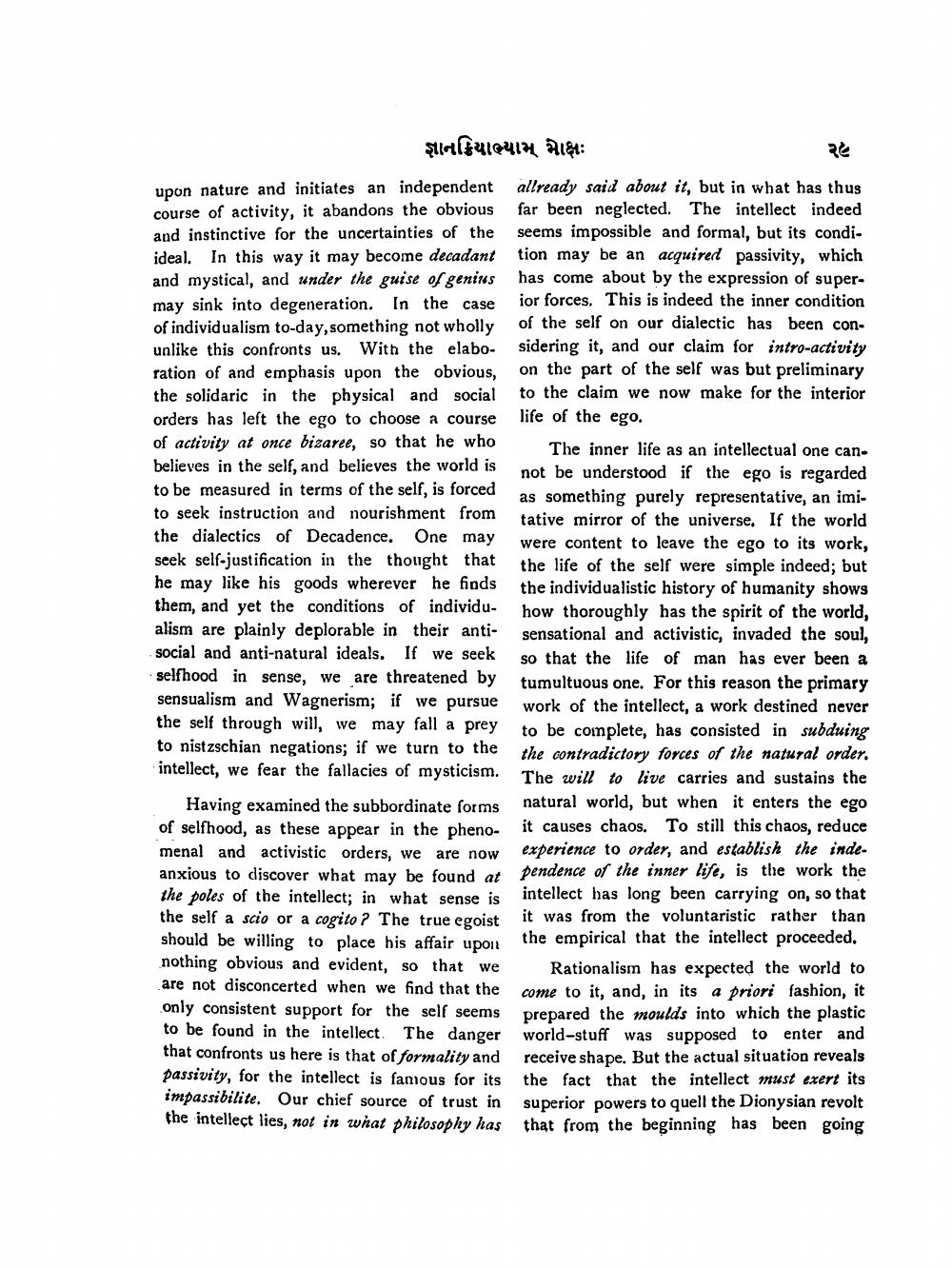________________
જ્ઞાનદિયાભ્યામ મોક્ષઃ
upon nature and initiates an independent allready said about it, but in what has thus course of activity, it abandons the obvious far been neglected. The intellect indeed and instinctive for the uncertainties of the seems impossible and formal, but its condiideal. In this way it may become decadant tion may be an acquired passivity, which and mystical, and under the guise of genius has come about by the expression of supermay sink into degeneration. In the case ior forces. This is indeed the inner condition of individualism to-day, something not wholly of the self on our dialectic has been conunlike this confronts us. With the elabo- sidering it, and our claim for intro-activity ration of and emphasis upon the obvious, on the part of the self was but preliminary the solidaric in the physical and social to the claim we now make for the interior orders has left the ego to choose a course life of the ego. of activity at once bizaree, so that he who
The inner life as an intellectual one canbelieves in the self, and believes the world is
not be understood if the ego is regarded to be measured in terms of the self, is forced
as something purely representative, an imito seek instruction and nourishment from
tative mirror of the universe. If the world the dialectics of Decadence. One may
were content to leave the ego to its work, seek self-justification in the thought that
the life of the self were simple indeed; but he may like his goods wherever he finds
the individualistic history of humanity shows them, and yet the conditions of individu- how thoroughly has the spirit of the world, alism are plainly deplorable in their anti- sensational and activistic, invaded the soul, social and anti-natural ideals. If we seek
so that the life of man has ever been a selfhood in sense, we are threatened by
tumultuous one. For this reason the primary sensualism and Wagnerism; if we pursue
work of the intellect, a work destined never the self through will, we may fall a prey to be complete, has consisted in subduing to nistzschian negations; if we turn to the the contradictory forces of the natural order. intellect, we fear the fallacies of mysticism. The will to live carries and sustains the
Having examined the subbordinate forms natural world, but when it enters the ego of selfhood, as these appear in the pheno- it causes chaos. To still this chaos, reduce menal and activistic orders, we are now experience to order, and establish the indeanxious to discover what may be found at pendence of the inner life, is the work the the poles of the intellect; in what sense is intellect has long been carrying on, so that the self a scio or a cogito 2 The true egoist it was from the voluntaristic rather than should be willing to place bis affair upon the empirical that the intellect proceeded. nothing obvious and evident, so that we Rationalism has expected the world to are not disconcerted when we find that the come to it, and, in its a priori fashion, it only consistent support for the self seems prepared the moulds into which the plastic to be found in the intellect. The danger world-stuff was supposed to enter and that confronts us here is that of formality and receive shape. But the actual situation reveals passivity, for the intellect is famous for its the fact that the intellect must exert its impassibilite. Our chief source of trust in superior powers to quell the Dionysian revolt the intellect lies, not in what philosophy has that from the beginning has been going




